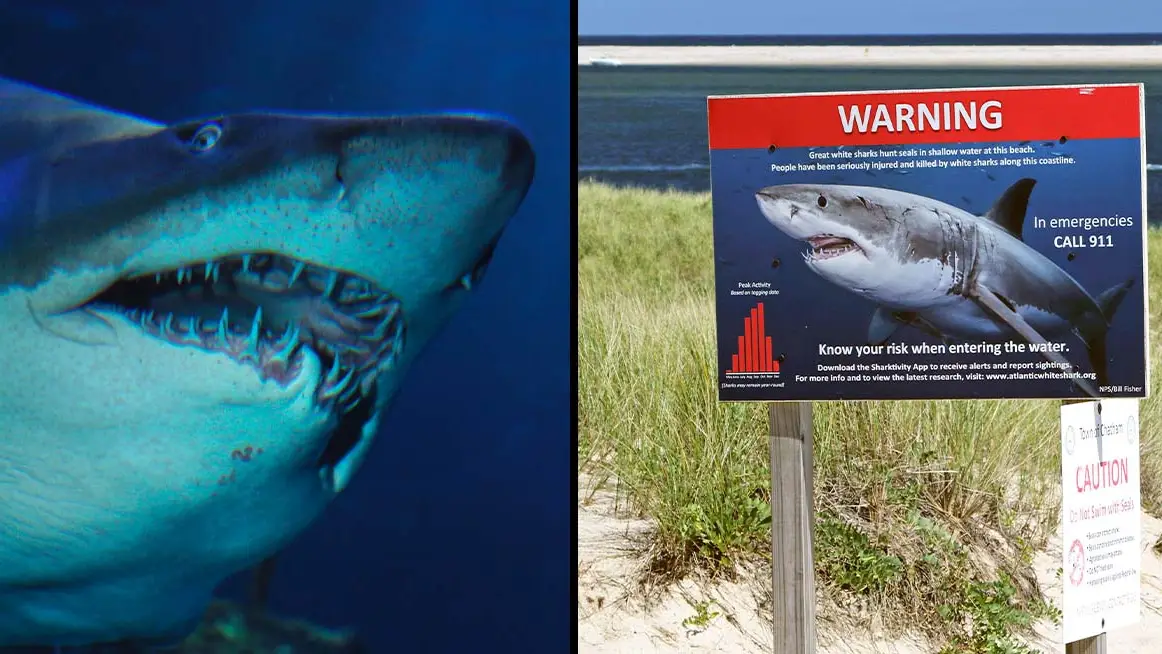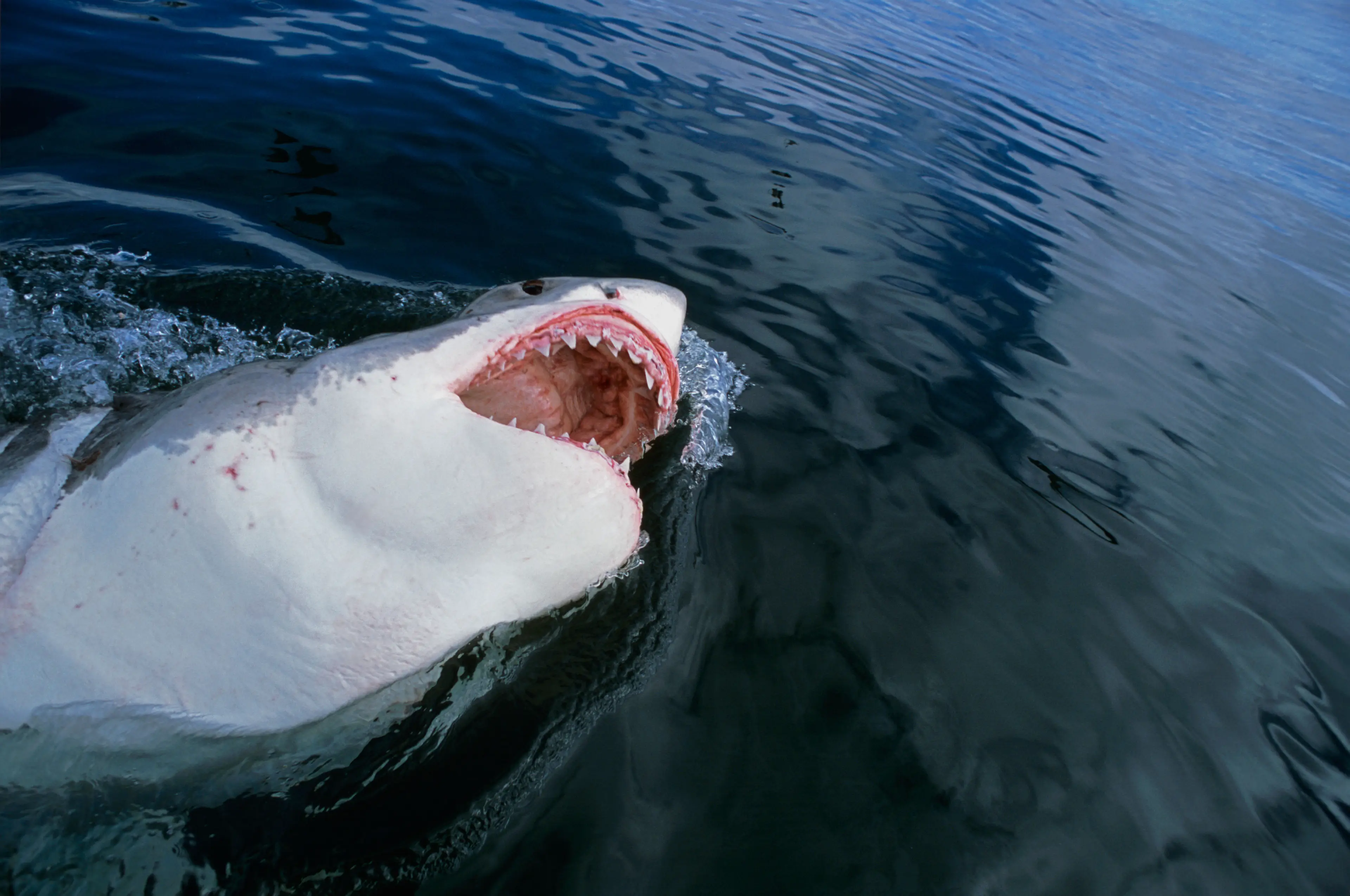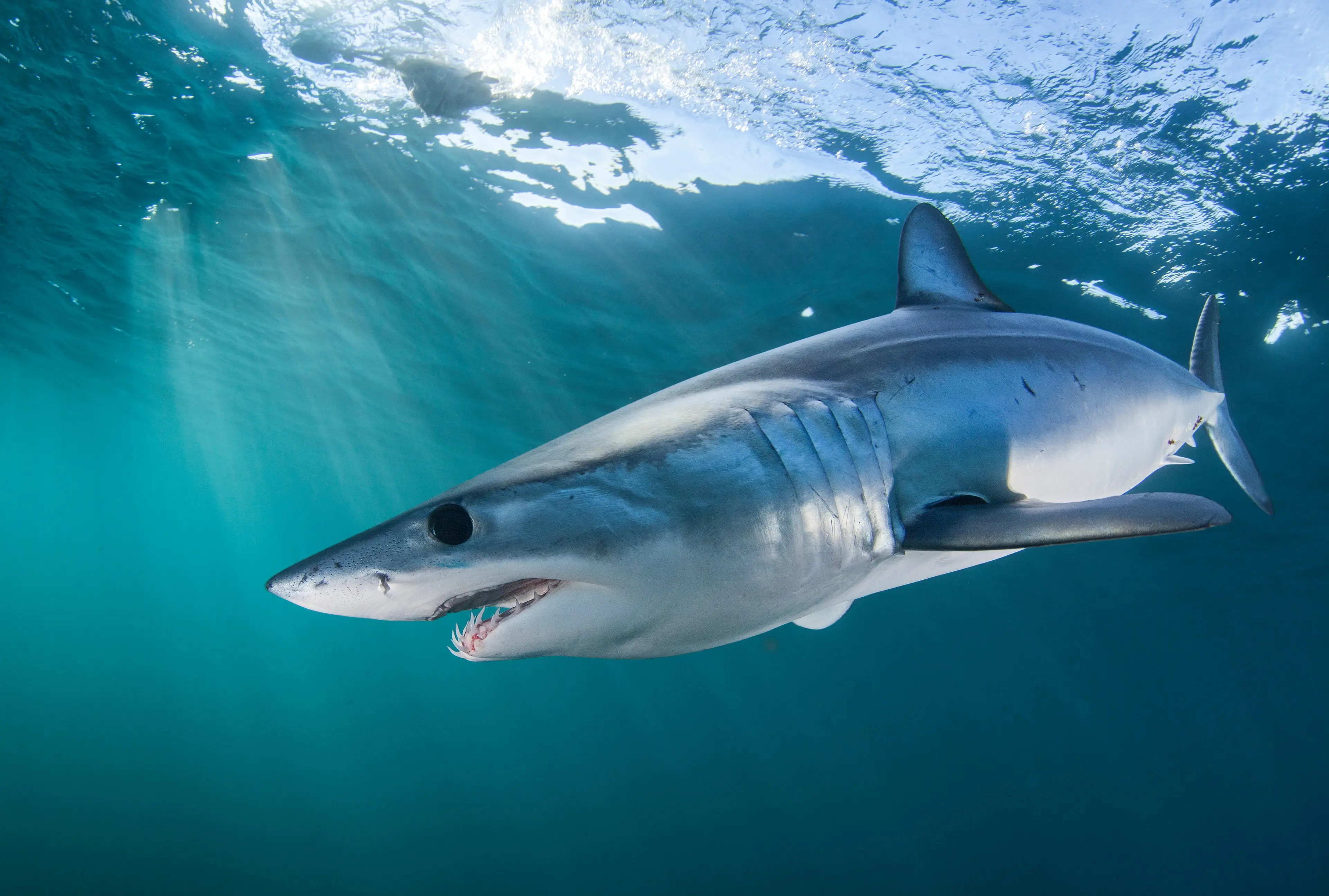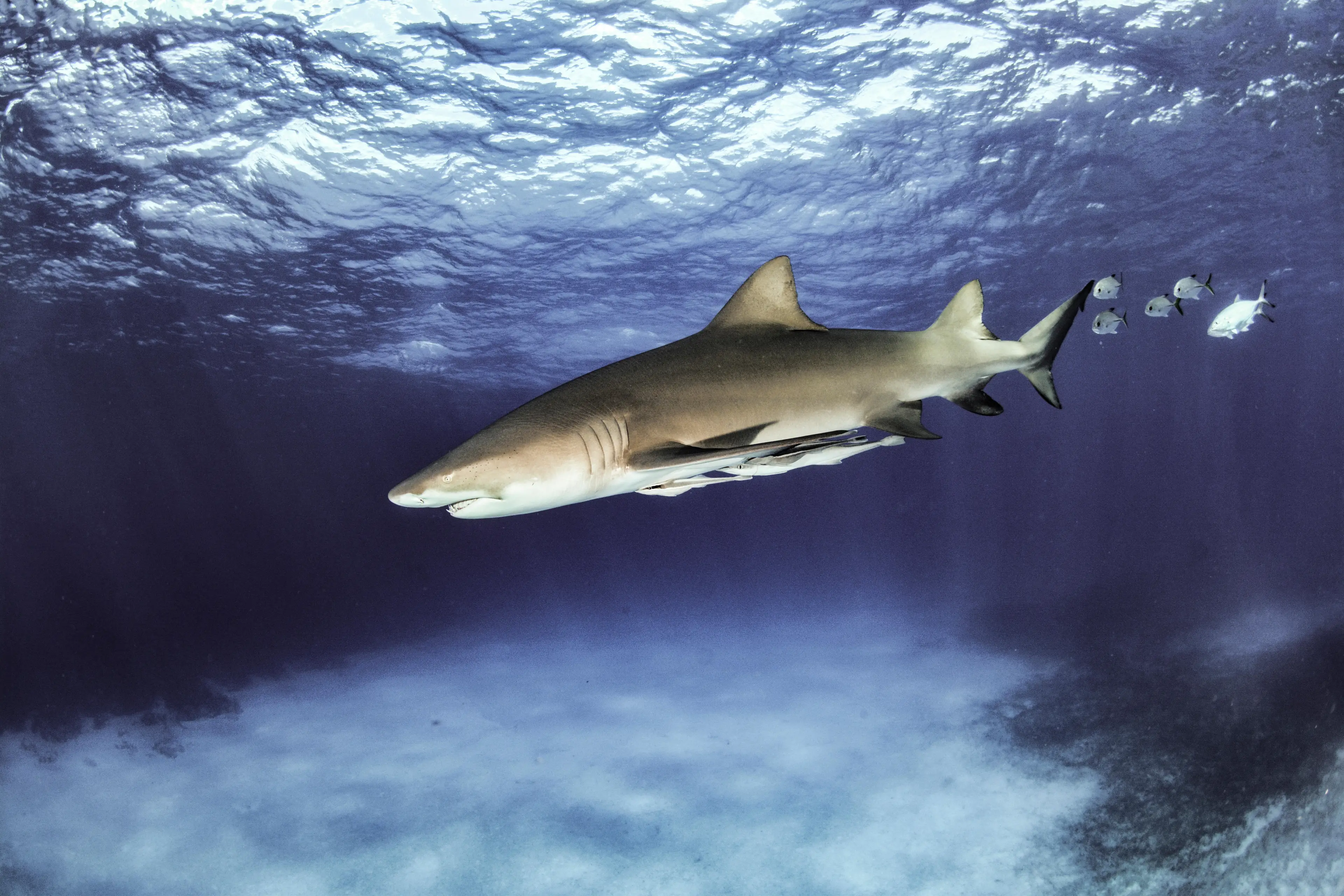
Six people around the world have already been killed by sharks this year, with at least 33 more people injured by the giant sea predators.
Of course, that’s not that many people in the grand scheme of things, there are more than seven billion people in the world, but it could still put the fear into anyone wishing to enter the waters in places that sharks are known to frequent.
Luckily for us, that doesn’t really include the UK – unless you’re counting the basking shark or the porbeagle.
To be fair, the basking shark is only a worry if you’re one of our readers that happens to be a bit of microscopic plankton.
Advert
Anyway, so far in 2022 there have been 26 men and 13 women attacked by sharks, including one attack on an eight-year-old girl, although it’s not as if the sharks can make that distinction.

Just this month two women in Egypt were killed within a distance of 600 metres by sharks, causing a number of beaches on Egypt’s Red Sea coast to shut down.
In the first, an Austrian woman who said she was heading back to the sea just ‘for a moment’ lost an arm and a leg during the fatal attack.
Then, two days later a Romanian woman was attacked and killed.
Some reports have even suggested that it could be the same animal, believed to be a Mako shark, according to the Egyptian authorities.
Speaking to The Sun, Ahmed Fouad, the director of Red Sea Project, said: "The shortfin mako sharks, in general, are rarely encountered by swimmers or divers due to their oceanic nature and should be treated with respect and caution.
"This individual could have been an injured or hungry shark that was looking for food in this non-typical habitat. Or simply, following illegal fishing activities.
"Sharks get attracted near the shore and in open waters by bait and vibes emitted by other fish when caught."

However, he added that humans have ‘never been within the sharks’ diet’.
Other attacks around the world have occurred in Mexico, Colombia, South Africa, Australia, and around the Pacific.
Fouad continued: "The chances of being attacked by a shark are very small compared to other animal attacks or other causes of injuries and death.
"Tourism-related impacts include pollution from vessels, discarded waste and plastics or sportive fishing.
"Changing the natural behaviour of the sharks or rays and the species composition at a site, touching or injuring the animals, or altering their habitat can ultimately damage the resources upon which tourism businesses are based and change sharks behaviour."
Briton Simon Nellist was killed after a mauling from a Great White in Sydney in February.
So far, Florida in the United States seems to be this year’s hotspot for shark attacks, with 11 so far, according to Tracking Sharks.
Gavin Naylor, director of the Florida Programme for Shark Research, has a theory why that might be.

He explained: "Florida has more shark bites than most places because it has a long coastline relative to its surface area and much of this coastline is beach.
"The beaches attract a lot of tourists.
"Florida is also sub-tropical and usually has a healthy population of carcharhinid sharks which tend to be between 3-9 ft long.
"When you put it all together with lots of people in water where coastal sharks live, the probability of the sharks mistaking a swimmer's foot or arm for the bait fish they usually feed on increases.
"It's as simple as that."
As we’ve said, you’re incredibly unlikely to be attacked by a shark, and incredibly unlucky if you are.
We’ve just got to show them the respect they deserve when we enter their habitat.
Topics: World News, Animals